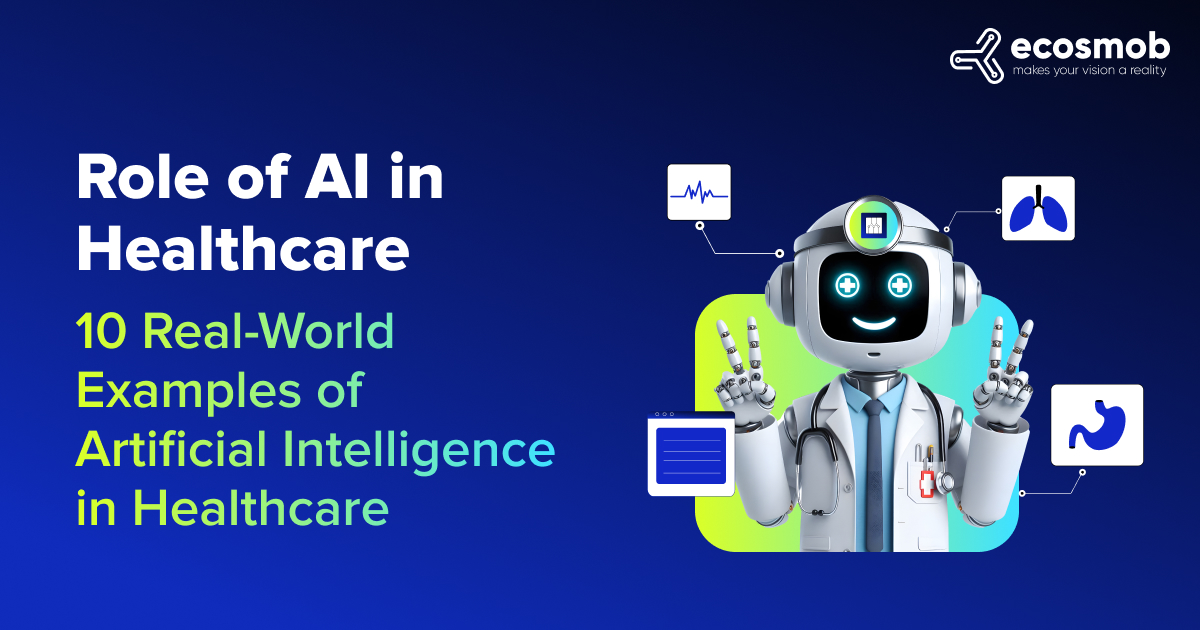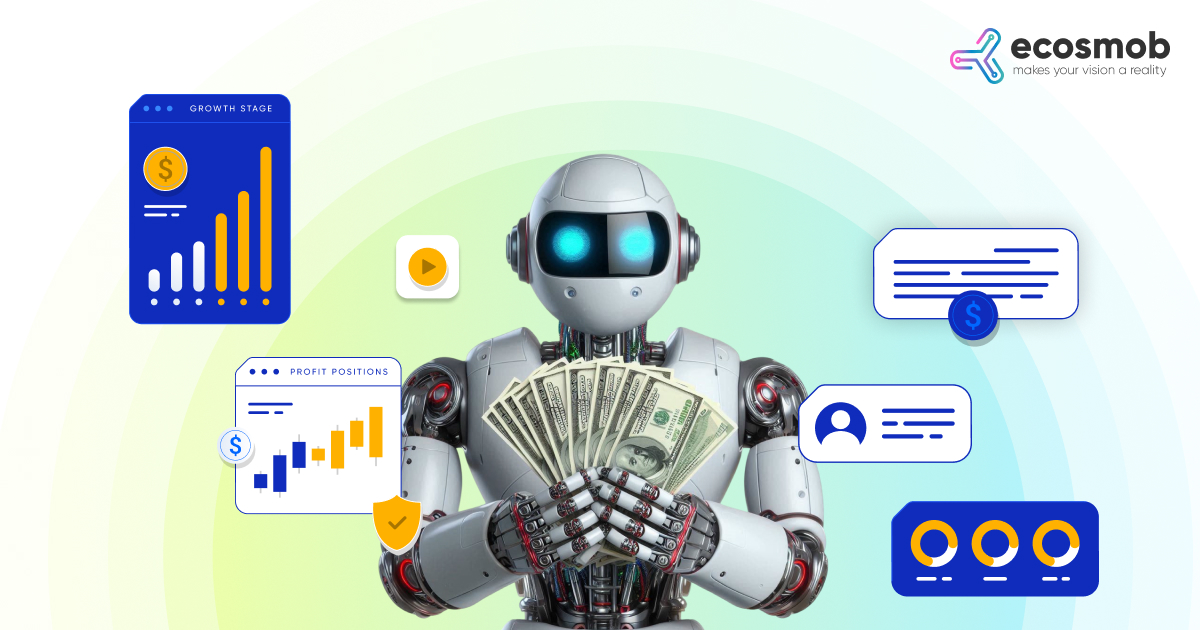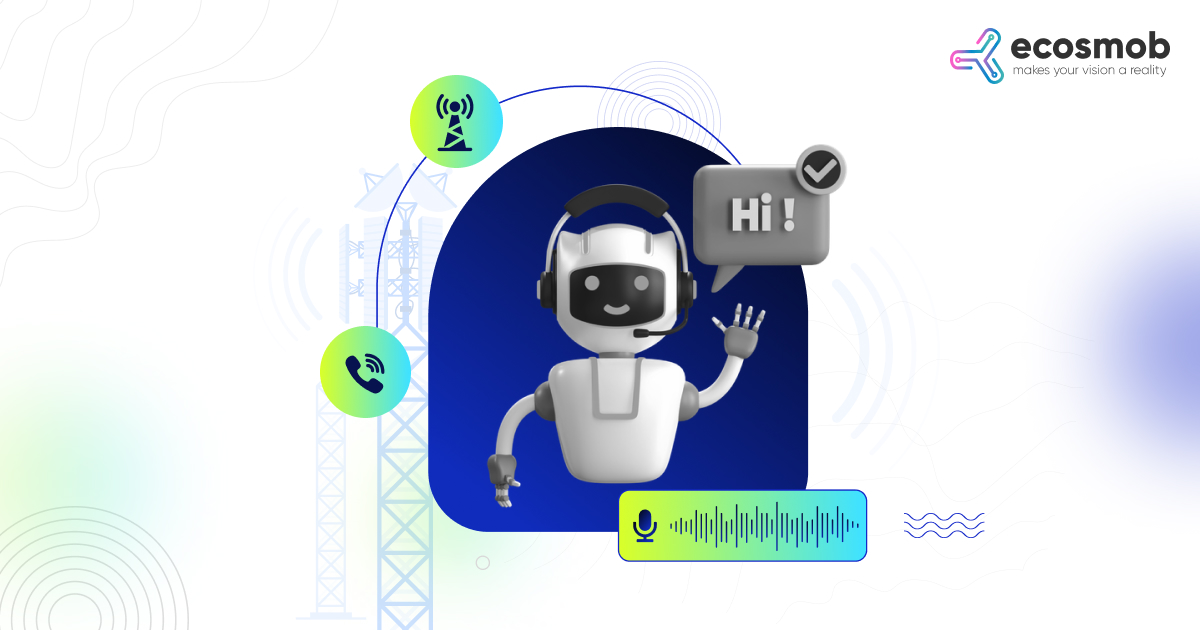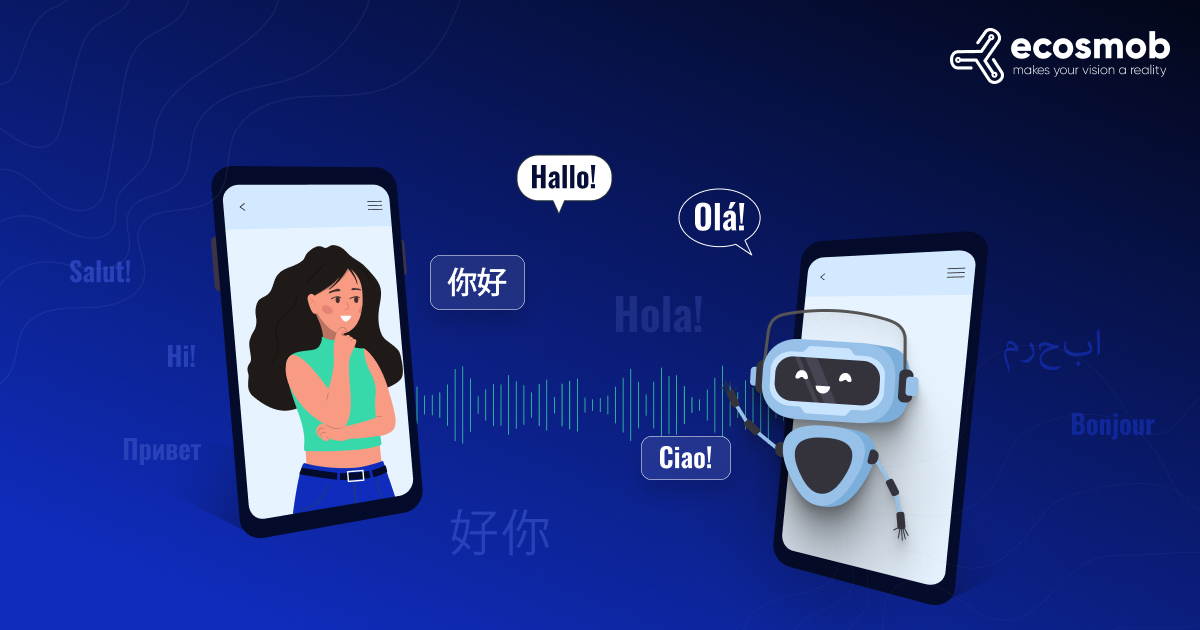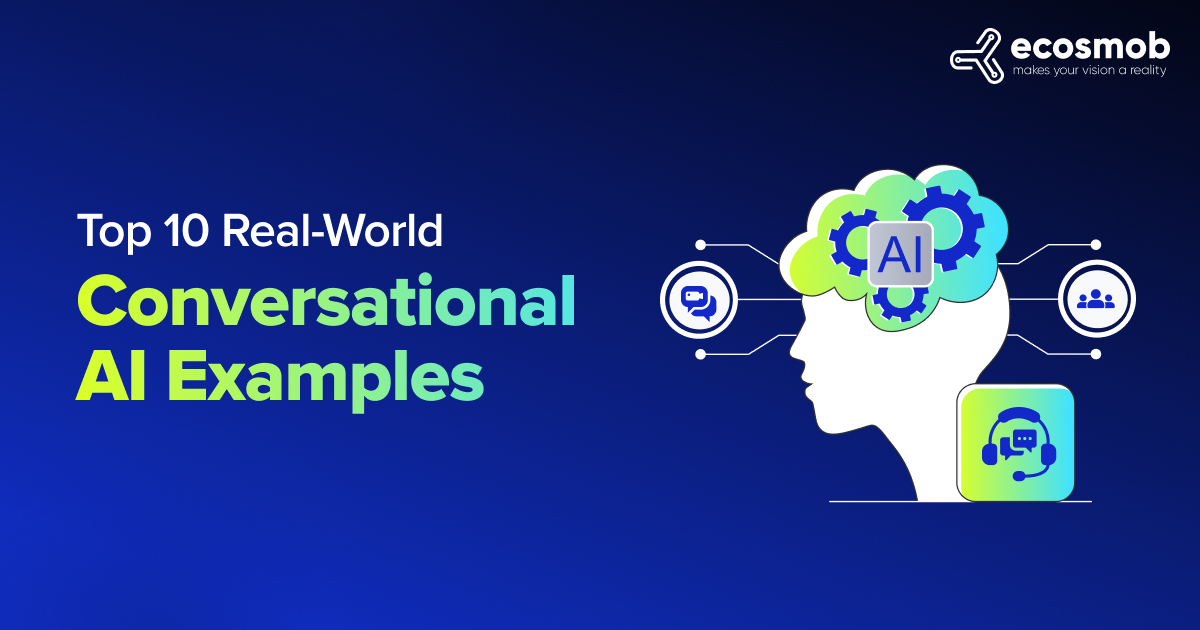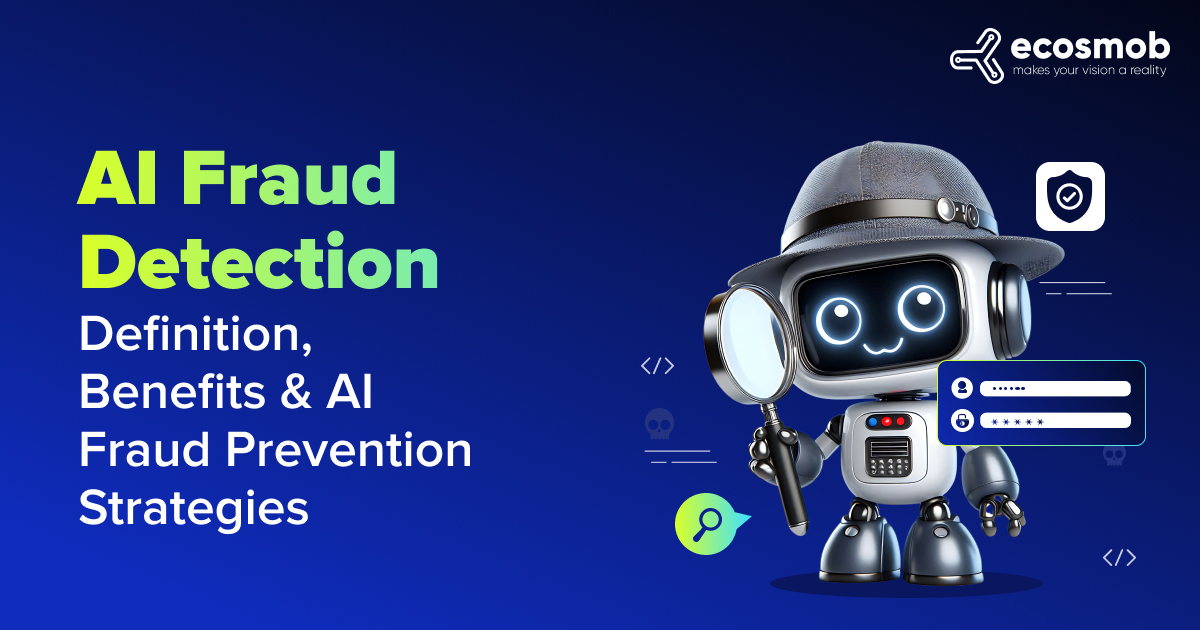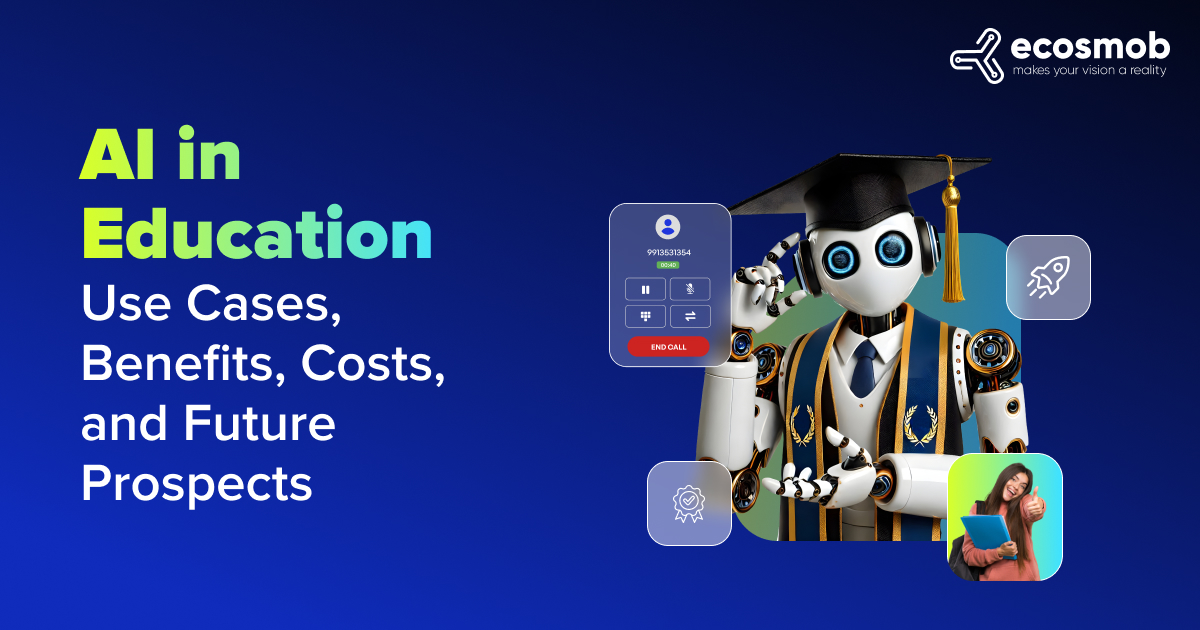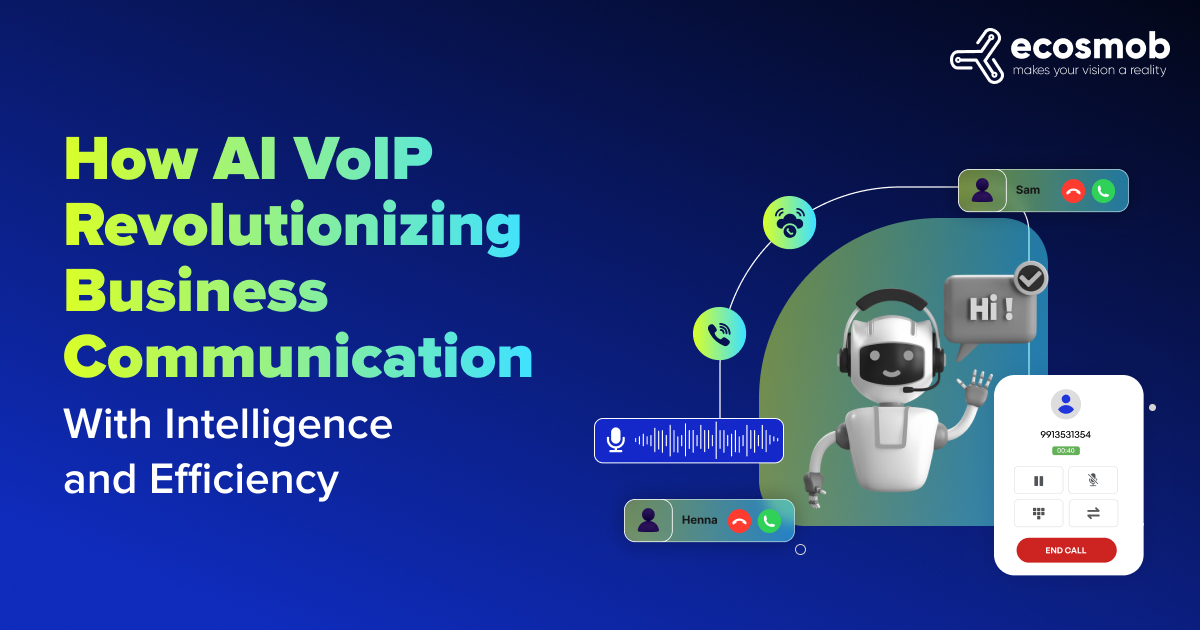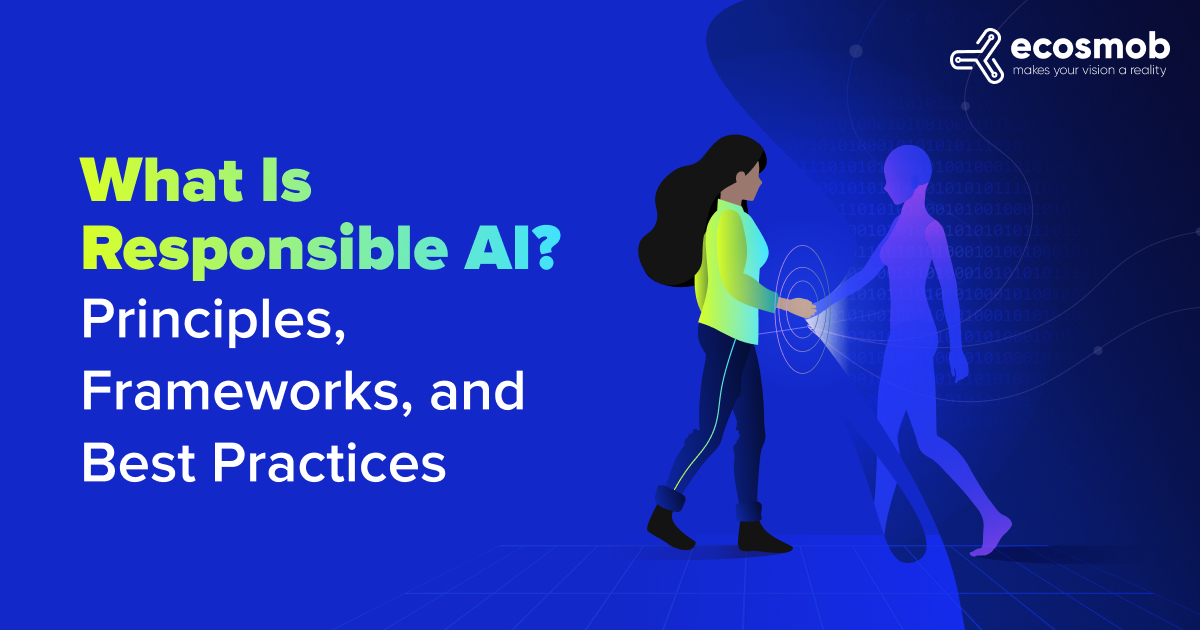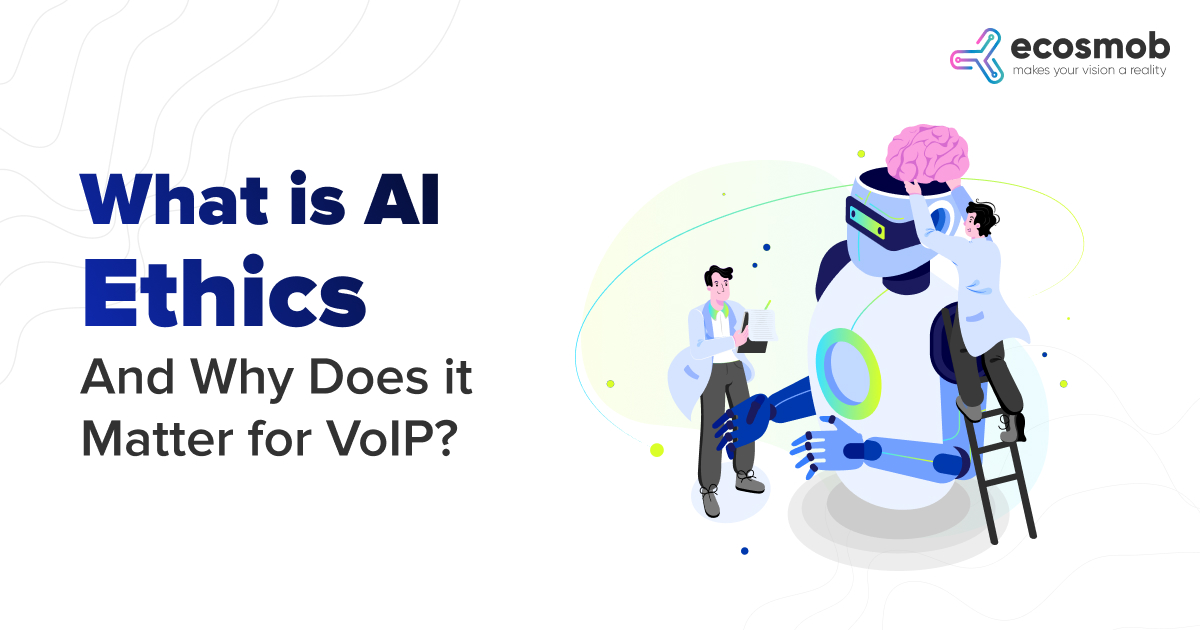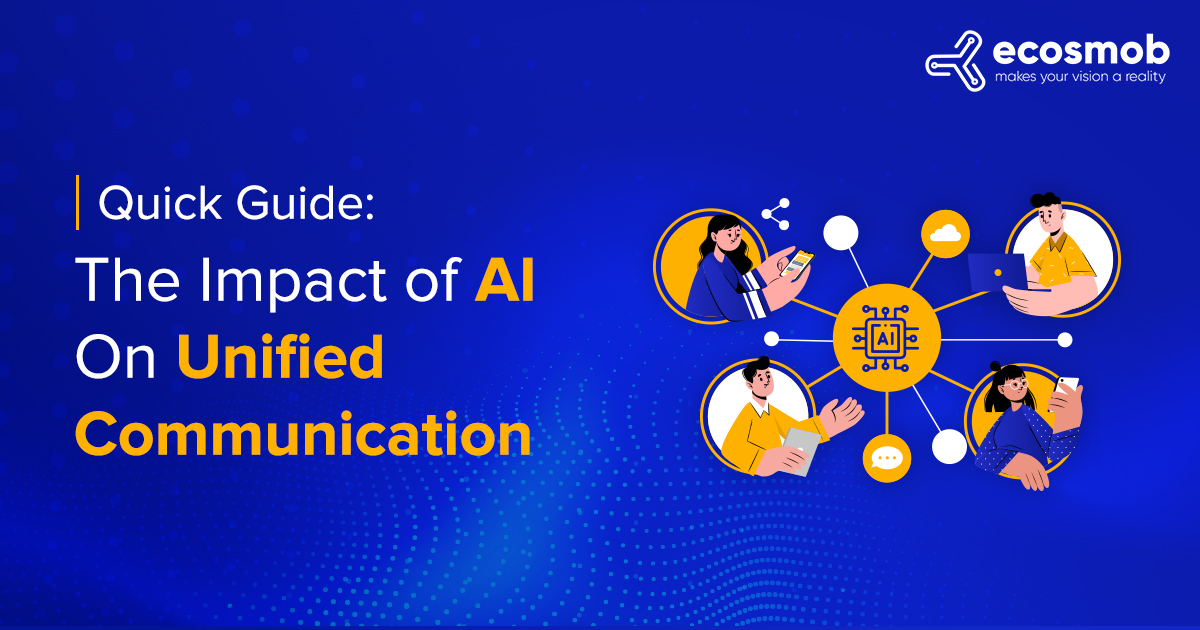QUICK SUMMARY
AI in healthcare makes diagnoses faster, treatments more personalized, and operations more efficient. Are you interested in how AI is influencing the future of medicine? Look into real-world examples that show its strong impact, from finding diseases early to improving patient care.
In ancient times, we used trial and error to treat injuries and illnesses. We were completely reliant on herbs, plant-based remedies, and natural substances.
The medical ecosystem has evolved with the integration of advanced technology in healthcare. Conditions previously challenging to diagnose before significant disease progression are now detectable and treatable.
Today, the healthcare industry is not only about medicinal substances; it’s a powerful combination of medicinal expertise and technological innovation. One of the most significant and transformative forces driving this evolution is Artificial Intelligence (AI).
AI is changing how we diagnose, treat, and manage diseases. It’s not just an incremental improvement but a fundamental turning point in healthcare. AI is helping doctors detect diseases earlier and with greater accuracy. For example, AI algorithms can analyze medical images, like X-rays or MRIs, with precision that rivals or even exceeds that of human experts, enabling early detection of conditions like cancer, heart disease, and neurological disorders.
Let’s look at real-world examples of AI in healthcare that are transforming how we approach patient care, disease management, and medical research.
Before that, let’s understand,
Ready to lead in healthcare innovation? Partner with us to create custom tools that deliver better outcomes and streamline processes!
What Is AI in Healthcare?
AI in healthcare is using artificial intelligence (AI) technology in different domains of the healthcare industry to improve healthcare company operations. This involves a set of technologies such as machine learning, natural language processing, deep learning, and some other AI technologies.
These technologies can help you level up your healthcare operations by making quicker decisions, using personalized treatment and data-driven diagnosis methods.
Healthcare is a major AI industry, with applications ranging from personalized medicine to operational optimization. The global market for AI in healthcare is projected to reach $148.4 billion by 2029. This rapid growth is driven by AI’s ability to deliver better outcomes, reduce costs, and address critical challenges in the medical field.
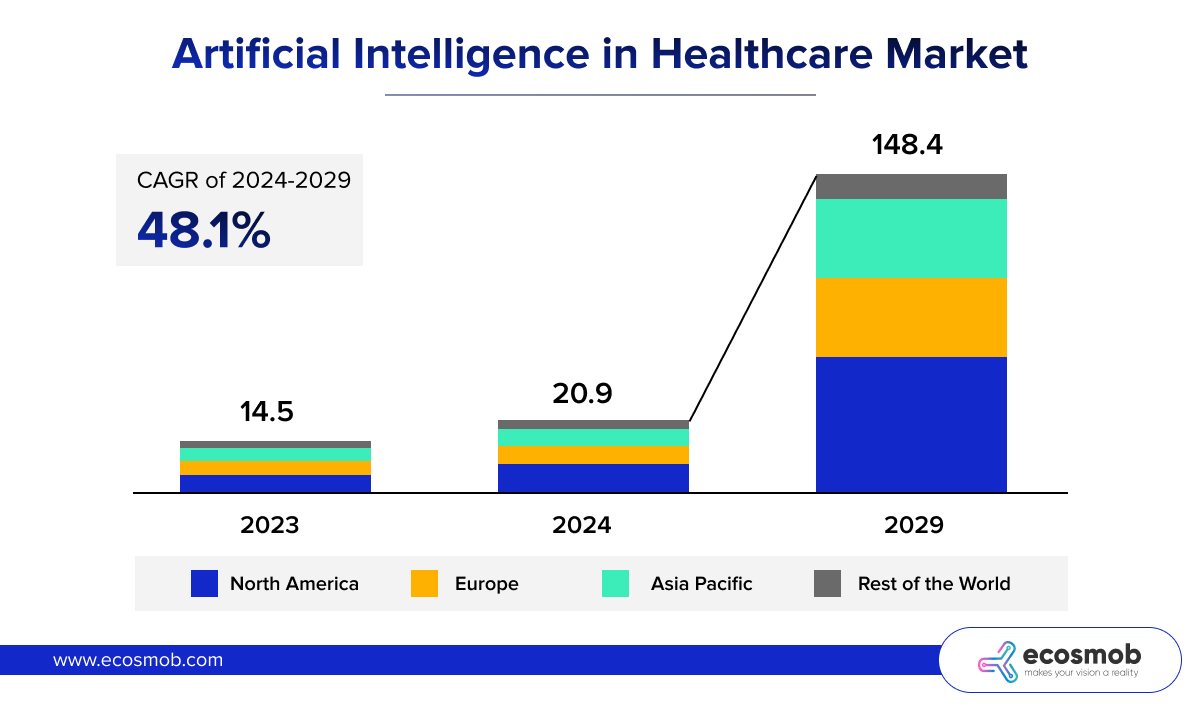
10 Examples of Artificial Intelligence in the Medical Field
Whether you’re a healthcare provider, a tech enthusiast, or someone curious about the role of AI in healthcare, these examples will show how AI is making medicine smarter, faster, and more accessible.
1. Predicting Heart Disease and Stroke Risks
AI algorithms excel at predictive analytics for cardiovascular health by leveraging patient data from multiple sources, such as electronic health records (EHRs), imaging scans, and real-time monitoring devices. Tools like HeartFlow and AliveCor use AI for healthcare to model coronary artery disease risks and detect irregular heart rhythms.
How It Works:
AI-driven tools analyze structured and unstructured data using machine learning techniques. For example:
- Deep learning models process ECG signals to detect atrial fibrillation with precision.
- Predictive algorithms cross-reference patient history, lifestyle data, and biometrics to flag potential stroke or heart attack risks.
- Some tools also incorporate natural language processing (NLP) to extract relevant data from doctors’ notes or unstructured patient histories.
Impact:
Early detection through AI allows for timely preventive measures, reducing the incidence of heart attacks and strokes. Studies have shown that AI can predict cardiovascular events with greater accuracy than traditional risk assessment methods.
2. AI-Powered Radiology: Faster and More Accurate Imaging
Radiology departments are inundated with imaging scans, often leading to delays in diagnosis. AI bridges this gap by automating image analysis and prioritizing cases based on urgency. Solutions like Aidoc and Zebra Medical Vision use computer vision to detect conditions ranging from fractures to pulmonary embolisms.
How It Works:
- Convolutional neural networks (CNNs) are trained on vast imaging datasets to identify anomalies like nodules, tumors, or hemorrhages.
- AI tools use multi-layered architectures to process complex patterns and pixel data from CT, MRI, and X-ray scans.
- Certain platforms integrate with radiology information systems (RIS) and PACS (Picture Archiving and Communication Systems) for seamless workflows.
Impact:
This is one of those revolutionary examples of artificial intelligence in healthcare–reducing diagnostic errors and accelerating the imaging process. For example, AI has been shown to detect breast cancer in mammograms with accuracy comparable to that of expert radiologists.
3. Personalized Oncology Treatments with AI
Cancer care is moving toward precision medicine, thanks to AI products in the medical field like Tempus and IBM Watson for Oncology. These tools analyze genetic profiles, clinical trial data, and patient outcomes to tailor treatments.
How It Works:
AI integrates multi-omics data—genomics, proteomics, and transcriptomics—with clinical records to simulate cancer behavior.
- AI algorithms compare genetic mutations with global cancer registries to recommend targeted therapies, such as immunotherapy or precision drugs.
- Natural language processing (NLP) extracts actionable insights from research papers and clinical guidelines.
Impact:
Personalized treatments improve patient outcomes and reduce unnecessary side effects. AI-driven approaches have led to more targeted therapies, increasing the success rates of cancer treatments.
4. Retinal Disease Detection with AI
Ophthalmology relies heavily on imaging to diagnose conditions like diabetic retinopathy and macular degeneration. AI products in healthcare like Eyenuk and DeepMind enable early and accurate detection, even in under-resourced settings.
How It Works:
- AI systems analyze retinal scans using pattern recognition and feature extraction techniques.
- Deep learning models identify microaneurysms, hemorrhages, or abnormal retinal thickness, which are indicators of disease progression.
- Automated grading systems classify the severity of conditions, aiding ophthalmologists in prioritizing high-risk cases.
Impact:
Early detection through AI enables prompt treatment and preserves vision. AI has demonstrated high accuracy in identifying retinal diseases, often surpassing traditional screening methods.
5. AI-Driven Pathology for Precision Diagnosis
Traditional pathology involves manual analysis of biopsy slides, which is time-intensive and prone to variability. Tools like Paige.AI are great examples of AI in healthcare which are automating such processes with remarkable precision.
How It Works:
- Digital pathology platforms digitize high-resolution slide images, which AI algorithms process to identify malignancies.
- Techniques like CNNs classify tumor grades and quantify affected areas.
- AI also integrates metadata such as patient demographics and clinical history to contextualize findings.
Impact:
Using AI for healthcare like this assists pathologists in making more accurate diagnoses and reduces the time required for analysis. This leads to faster treatment decisions and improved patient care.
6. Smart Wearables for Chronic Disease Management
AI-powered wearables like the Apple Watch and Fitbit have transformed remote monitoring by continuously tracking patient health metrics.
How It Works:
- Embedded AI analyzes sensor data in real-time, identifying trends or deviations in heart rate, blood pressure, and oxygen levels.
- Machine learning models detect irregularities like arrhythmias or apnea episodes and send alerts to patients or doctors.
- Some devices use predictive analytics to forecast health events, such as glucose spikes in diabetic patients.
Impact:
Continuous monitoring helps detect potential health issues early, enabling timely interventions. This proactive approach helps manage chronic diseases more effectively and reduces hospitalizations.
7. Virtual Health Assistants for Better Patient Engagement
AI-powered virtual assistants improve patient engagement by offering instant support and medical guidance while ensuring HIPAA compliance for healthcare call centers during patient interactions.
How It Works:
- Virtual assistants use NLP to interpret symptoms and provide relevant medical advice.
- AI-driven symptom checkers compare user inputs with vast medical databases, suggesting probable conditions or next steps.
- Integrations with wearable devices and EHRs create personalized experiences for patients.
Impact:
These assistants improve access to healthcare information and empower patients to actively approach their health management. They also alleviate the burden on healthcare providers by handling routine inquiries.
8. AI in Genomic Research: Unlocking the DNA Code
AI is accelerating genomics discoveries by analyzing large DNA sequence datasets to identify disease-causing mutations.
How It Works:
- AI models process raw genomic data, detecting variations linked to diseases like cancer or rare genetic disorders.
- Deep learning predicts how specific mutations impact protein function, aiding drug development.
- Algorithms identify biomarkers for early diagnosis or targeted therapies.
Impact:
AI-driven genomic research facilitates the development of personalized medicine and targeted therapies, improving treatment outcomes.
9. Hospital Operations Optimization with AI
We are seeing more and more examples of artificial intelligence in healthcare streamlining hospital operations–from patient scheduling to supply chain management. For instance, platforms like Qventus are using AI for real-time decision-making.
How It Works:
- Predictive models analyze historical and live data to forecast patient volumes and resource requirements.
- AI optimizes workflows by automating routine administrative tasks, like bed allocation or discharge planning. Advanced patient flow management systems leverage AI to reduce bottlenecks, ensuring smoother transitions between departments and minimizing delays.
- Integration with IoT devices tracks inventory levels and automates restocking.
Impact:
Optimized healthcare operations lead to reduced wait times, improved resource allocation, and higher patient satisfaction. Hospitals utilizing AI have reported significant improvements in operational efficiency.
10. AI for Mental Health Support
AI offers promising solutions for mental health support, including early detection, personalized treatment, and improved access to care through virtual assistants, chatbots, and AI-powered apps.
However, it is important to note that AI’s capabilities are based on pattern recognition and language modeling, not genuine emotional comprehension.
How It Works:
- NLP interprets user input to provide personalized responses and exercises rooted in cognitive behavioral therapy (CBT).
- AI uses sentiment analysis to track mood patterns and flags potential mental health crises, alerting human therapists when necessary.
- Continuous learning enables chatbots to adapt to user needs over time.
Impact:
These tools increase access to mental health resources, particularly in underserved areas, and provide immediate support to needy individuals. They complement traditional therapy and have been effective in managing conditions like anxiety and depression.
From precision diagnostics to patient engagement, these examples of artificial intelligence in healthcare show how AI may transform every life. As the need for smarter, faster solutions grows, adopting custom AI systems is the key to staying ahead.
Case Study: Dr. Batra’s Partners with Ecosmob to Build Robust Mobile Apps for Patients and Custom Web Portals for Doctors
Dr. Batra’s Healthcare is one of the world’s largest homeopathy clinic chains, providing best-in-class treatment by combining homeopathy with advanced technology. With over 1.5 million patients treated across 200+ clinics in five countries — India, the UK, UAE, Bangladesh, and Bahrain — Dr. Batra’s wanted to enhance its digital infrastructure to improve patient-doctor engagement.
The Challenge:
Dr. Batra sought a tech partner to build a powerful mobile and web solution that streamlined doctor-patient communication while improving accessibility. Their key requirements were:
- A mobile app for patients to view upcoming and past appointments, reschedule, access medical history, and communicate with doctors via text, voice, and video calls.
- A web portal for doctors to manage appointments, access patient details and medical histories, and offer virtual consultations through video and voice calls.
- Integration of a reliable video consultancy feature to enable remote medical consultations.
The Solution:
Ecosmob partnered with Dr. Batra to create a feature-rich mobile app and web portal that leverages WebRTC technology for seamless video consultations.
Key features included:
For Patients: Appointment scheduling, medical history access, doctor profiles, chat with doctors, voice and video calling, report uploads, and feedback rating.
For Doctors: Appointment and patient list management, patient medical history tracking, offline consultation summaries, prescription uploads, report review, and secure communication via chat, voice, and video calls.
With this custom-built solution, Dr. Batra’s significantly improved online consultation services, providing patients with high-quality virtual care. The mobile app helps patients consult doctors from anywhere, while the web portal optimizes doctors’ workflows by consolidating patient information and communication tools in one place. Please find the complete case study here.
What Are the Pros and Cons of AI in Healthcare?
AI is changing healthcare by making it more efficient, accurate, and effective for patients. Here are some key benefits of AI in healthcare:
1. Better patient care
AI improves patient care by helping doctors find diseases faster using better image analysis and diagnostics. AI chatbots provide 24/7 access to medical information and personalized health advice, making it more convenient for patients. Additionally, AI helps create customized treatment plans based on individual details, which leads to better health outcomes.
2. Predictive analytics
AI is great at looking at large data sets to spot patterns and predict health issues. This helps doctors and public health officials take action before problems arise, like preventing hospital readmissions and stopping disease outbreaks. This information allows them to use resources wisely and create personalized care for high-risk people.
3. Personalized medicine
AI is changing personalized medicine by looking at patients’ genetic information, medical history, and lifestyle. This helps create treatment plans that are tailored to each person, including the right medications and dosages. AI also plays an important role in developing targeted therapies for specific genetic mutations, especially in cancer treatment, making care more precise and effective.
4. Safer surgeries
AI is improving surgical precision and safety through robotic surgery systems that enable greater accuracy with smaller incisions. It analyzes real-time data to provide critical guidance during procedures and monitors patients’ vital signs, alerting staff to potential complications.
5. Improved patient engagement
AI helps patients manage their health using apps and wearables that track data and provide personalized feedback. Telehealth platforms make it easier to access care, especially in remote areas. Chatbots can answer questions, remind patients to take their medication, and increase patient engagement and satisfaction.
6. Operational efficiency
AI is improving healthcare by automating scheduling appointments, processing insurance claims, and managing medical records. Paired with VoIP in healthcare, it improves team communication, reducing delays and improving patient experience. This allows staff to spend more time on patient care. AI helps hospitals use their resources better by predicting patient numbers, managing supplies, and improving bed usage, which lowers costs. By analyzing patient data, AI shows where care can improve and boosts overall efficiency.
Paired with VoIP in healthcare, it improves team communication, reducing delays and improving patient experience.
Cons of AI in Healthcare
An another side of AI is its cons. Here are some of the disadvantages of AI in healthcare.
- Data Privacy/Security: Sensitive patient data is vulnerable to breaches.
- Bias/Discrimination: AI models can perpetuate existing biases in data.
- Lack of Human Touch: Reduced human interaction can negatively impact patient care.
- Cost of Implementation: Developing and deploying AI systems is expensive.
- Job Displacement: Automation may lead to job losses for healthcare professionals.
- Ethical Concerns: Issues surrounding autonomy, accountability, and consent.
- Over-reliance/Misdiagnosis: potential for errors if AI is not used correctly.
- Regulatory Uncertainty: the legal and ethical framework is still developing.
In conclusion, Artificial Intelligence (AI) significantly transforms healthcare by improving diagnostic accuracy, personalizing treatments, and enhancing patient care. AI applications, such as predictive analytics, advanced imaging, and precision medicine, are making healthcare faster, smarter, and more efficient.
While AI brings substantial benefits, including better patient outcomes and optimized operations, challenges such as data privacy, bias, and potential job displacement must be carefully managed. As AI continues to evolve, it offers great potential to revolutionize healthcare, though careful attention is needed to address its complexities.
Are you ready to improve your healthcare practice with advanced AI solutions?
Contact the experts at Ecosmob to learn how we can collaborate to turn your ideas into reality and positively impact your patients’ lives.
Looking for smarter healthcare solutions? Discover how you can transform patient care and operational efficiency!
FAQs
What are some examples of the use of AI in healthcare?
AI is used in diagnosis analyzing medical images identifying diseases, drug discovery predicting drug efficacy designing new molecules, personalized medicine tailoring treatments based on patient data, and patient monitoring detecting anomalies in vital signs.
Which AI tool is used in healthcare?
AI in healthcare employs machine learning for pattern recognition, natural language processing for analyzing medical records, and predictive analytics for risk stratification and forecasting.
How is AI used in surgery?
AI assists in robotic-assisted surgery improving precision and control, surgical planning, creating 3D models from scans, and intraoperative guidance providing real-time data to surgeons.
What are some AI in the medical field examples?
Examples include AI-powered disease detection from medical images X-rays MRIs, virtual assistants for patient inquiries, and automated analysis of large medical datasets for research.
How to use AI in healthcare effectively?
Effective use requires seamless integration into clinical workflows, robust data privacy and security measures, and a strong ethical framework that prioritizes patient safety and fairness.
What are some healthcare AI solutions available today?
Available solutions include AI-driven diagnostic imaging software, AI-powered drug discovery platforms, remote patient monitoring systems that detect health changes, and AI-based tools for administrative tasks.





